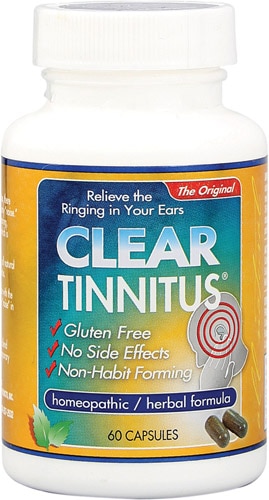From Lauryn Hill’s sultry songs to the sound of waves crashing and our loved one’s voice—some of the most beautiful moments in life are felt first in our ears.
And yet, a number of us take our ears and hearing for granted—so much so we rarely give thought to the fact that we might be susceptible to hearing loss. But just take a glance at the statistics. According to the National Institute on Deafness and Other Communication Disorders, 37.5 million American adults have hearing complications, while two percent of adults have disabling hearing loss—and the risk for decline increases with each birthday: “Age is the strongest predictor of hearing loss among adults aged 20-69,” the NIDOCD reports, “with the greatest amount of hearing loss in the 60 to 69 age group.”
Whether you’re 19 or 72, it’s never too early—or too late—to start safeguarding your hearing and ear health. Here are six smart, simple ways to protect one of our grandest—and most vital—sensory pleasures:
1. Don’t disregard it
First things first: One of the biggest mistakes you can make when it comes to your hearing is ignoring signs of trouble. “One of the most common and tragic and preventable problems we see is patients who have noticed a hearing loss getting gradually worse through the years without seeking help,” Robert Sataloff, MD and chairman of the department of Otolaryngology-Head and Neck Surgery at Drexel University College of Medicine, told Prevention. His advice? Come clean to your physician if you start experiencing ringing in your ears. “Ringing may be the first sign of a more serious problem,” Sataloff says.
2. Toss those Q-tips (or use them for purposes besides your ears)
Q-tips may have reigned supreme in your grandmother’s generation but these days cleaning your ears with them is considered not only an outdated practice but also a potentially harmful one. “It may feel like you’re getting the gunk out, but you can push the wax deeper and cause an impaction,” says Rick Friedman, MD, PhD, of the House Ear Clinic in Los Angeles and an associate professor at the University of Southern California’s Keck School of Medicine. Our ears were built to shed debris naturally, and earwax, which guards our ear canal, is meant to be there.
If you do feel clogged up, soak a cotton ball in alcohol and white vinegar, tilt your head up, pat your ear with the solution and let it drain.
3. Get moving
The benefits of exercise extend beyond your cardiac health and waistline: Research suggests that it might promote hearing health as well. Why? As Reader’s Digest says, “physically fit people tend to have better hearing than those who aren’t in good shape,” in part because aerobic exercise—jogging, swimming, dancing and more—“brings more oxygen into your system and improves blood flow to your ears.”
4. …but turn down the volume on your iPod
Whether you groove to tunes on your smartphone while cleaning the house or listen to podcasts on your commute, bear in mind that loud noises can take a toll on your hearing. The National Institutes of Health confirms our mom’s advice (and our good old-fashioned intuition): “Normally, these sounds at safe levels don’t damage our hearing. But sounds can be harmful when they are too loud, even for a brief time, or when they are both loud and long-lasting.” How so, you ask? They damage “sensitive structures in the inner ear” and cause “noise-induced hearing loss (NIHL).”
5. Make a beeline for the salad bar
The nutrients we ingest inform the way our bodies function and feel, including our hearing. To protect your love of Mozart, aim to work more potassium into your diet. Found in far more foods than bananas (including spinach, potatoes, tomatoes, melons and oranges), potassium—as Healthy Hearing reports—“is responsible for regulating the amount of fluid in your blood and body tissue. That can be important for your hearing health because fluid in the inner ear, that part of the ear that translates the noises we hear into electrical impulses the brain interprets as sound, is dependent upon a rich supply of potassium.” As we age, those levels naturally decline, which may influence the onset of age-related hearing loss (otherwise known as presbycusis).
6. Rethink reaching for that bottle of ibuprofen
Truckloads of people seek out a painkiller the moment their head begins to ache, and while the potential of finding temporary relief might be temping, reconsider how aspirin, ibuprofen and other NSAIDs (non-steroidal anti-inflammatories) might be affecting your hearing health. “NSAIDs temporarily disable the ear’s protective outer hair cells, leaving you more vulnerable to sound damage,” says Timothy C. Hain, MD, professor of neurology, otolaryngology, and physical therapy at Northwestern University.
Instead, search for natural relief for your aches and pains. A bath infused with lavender and peppermint oil can alleviate cramps and sore muscles, magnesium—found in supplement form and leafy greens, nuts, squash and whole grains—may calm the nerves and water may quell more than just your thirst (dehydration headaches are one of the most prevalent forms of secondary headaches, the Mayo Clinic reports).
And get outside: the fresh air, burst of exercise and respite from stressors might be just what the doctor—and otolaryngologist—ordered.




